I concluded that the absolute value of corporate earnings does not consistently lead the stock market in a previous study. I.e. sometimes corporate earnings fall before the stock market falls, sometimes the stock market falls before corporate earnings fall.
But what about the rate of change in corporate earnings? Does the change in corporate earnings GROWTH (i.e. second derivative of corporate earnings) lead the stock market? It appears to be the case from 1990-present.
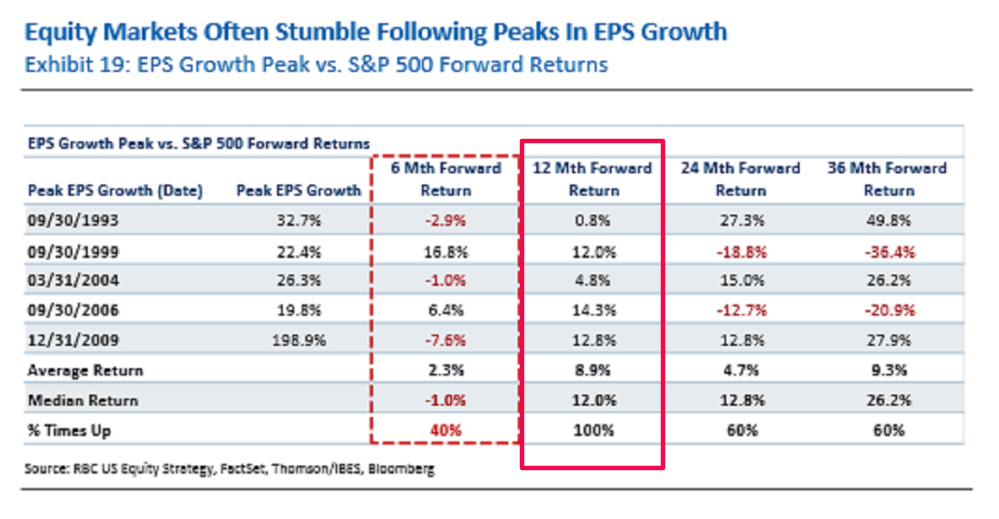
Let’s find out.
Does the year-over-year change in earnings lead the stock market?
This chart demonstrates the year-over-year change in the S&P 500’s corporate earnings (updated each month).
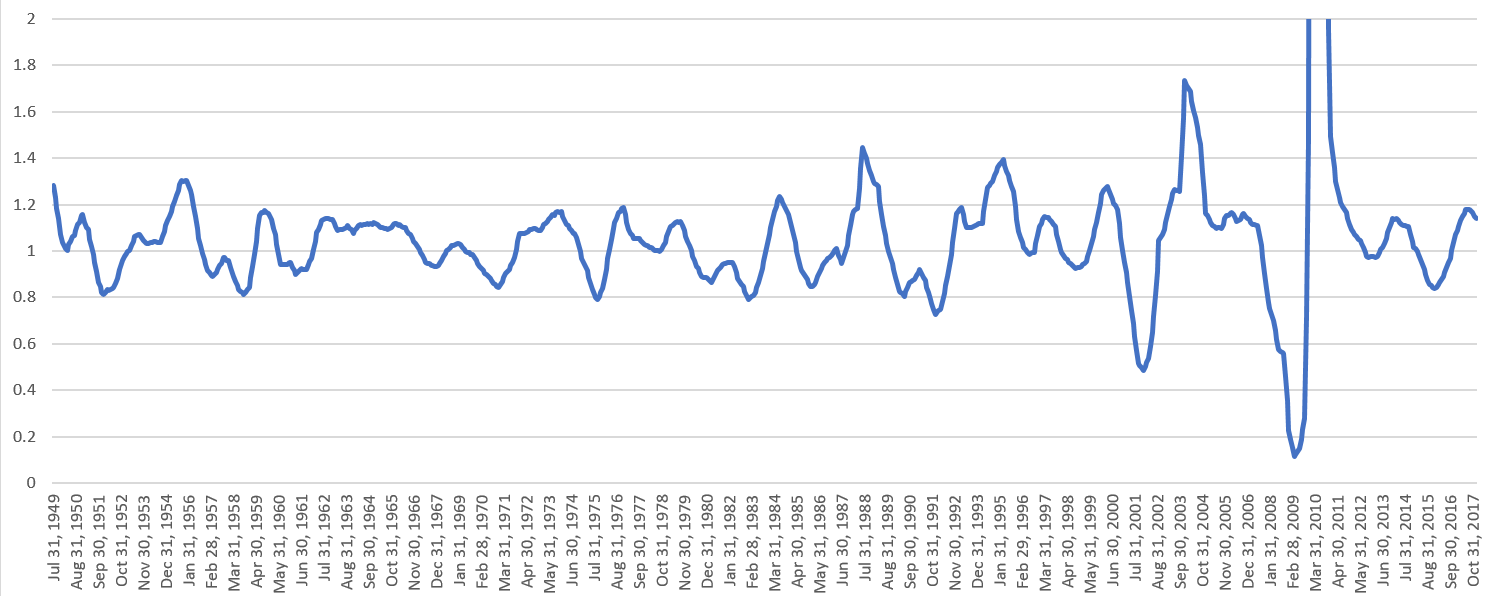
As you can see, this is NOT a good leading indicator for the stock market.
For example, the year-over-year change in earnings turned negative in August 2012 and remained negative until April 2013. The stock market went up during this period (although there was a “small correction” along the way).
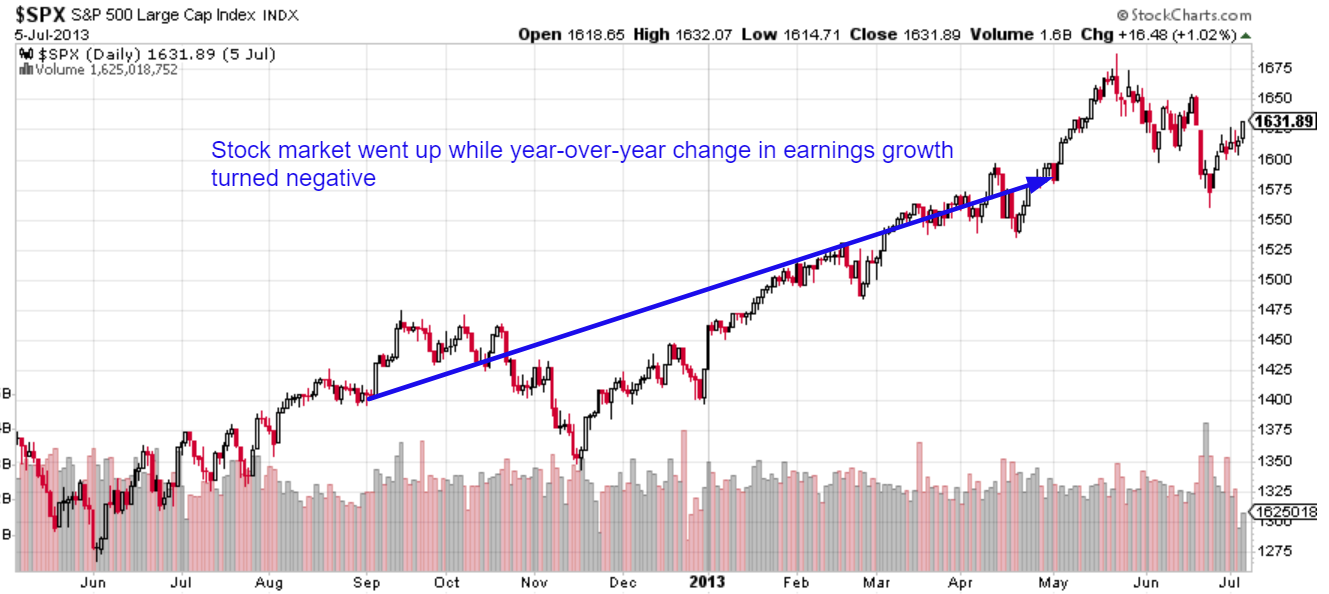
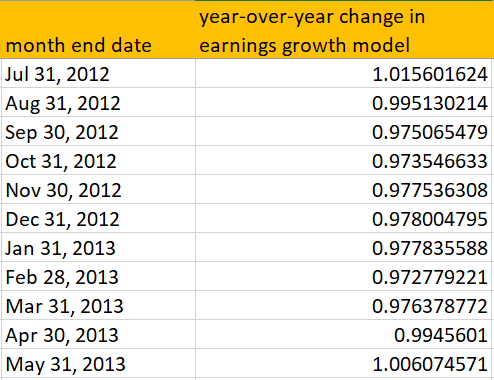
Here’s another example. The year-over-year change in earnings turned negative in April 1985 and remained negative until August 1987. The stock market went up while earnings growth was negative. When earnings growth started to rise and turned positive, the stock market CRASHED (“significant correction” of 1985).
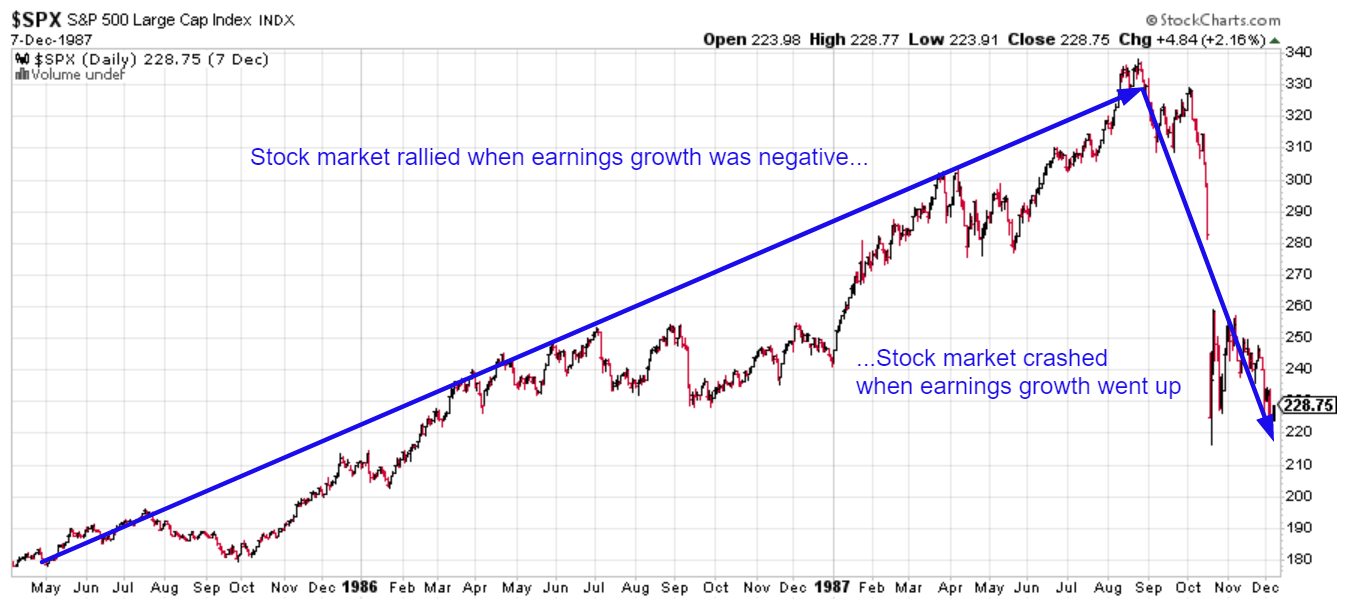
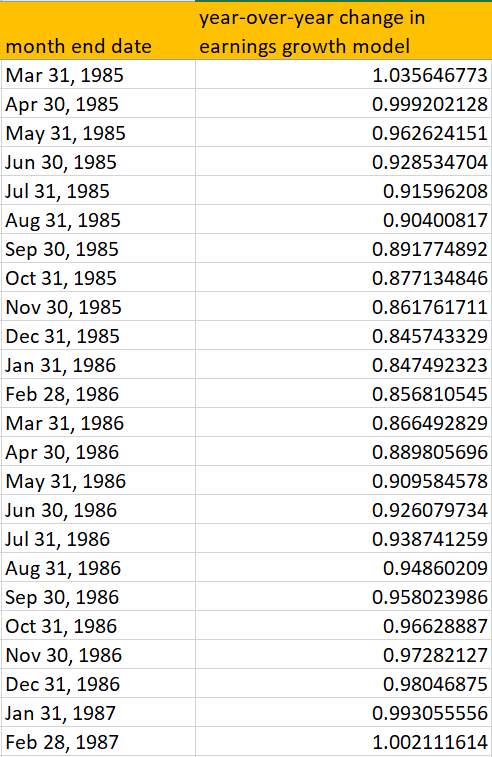
What about the year-over-year change in inflation-adjusted earnings? Does that lead the stock market?

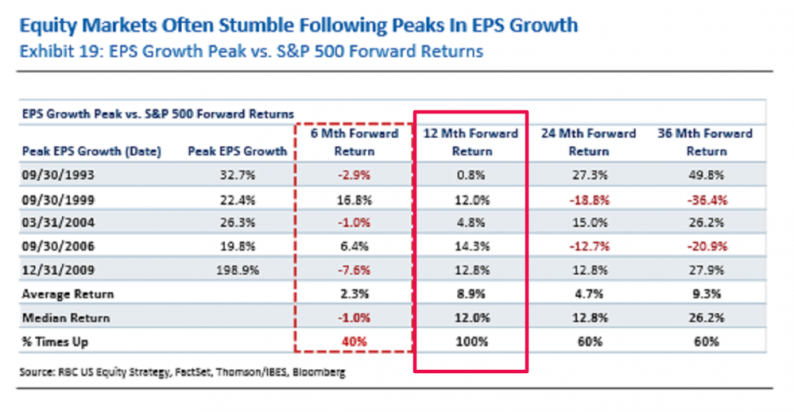







Leave A Comment